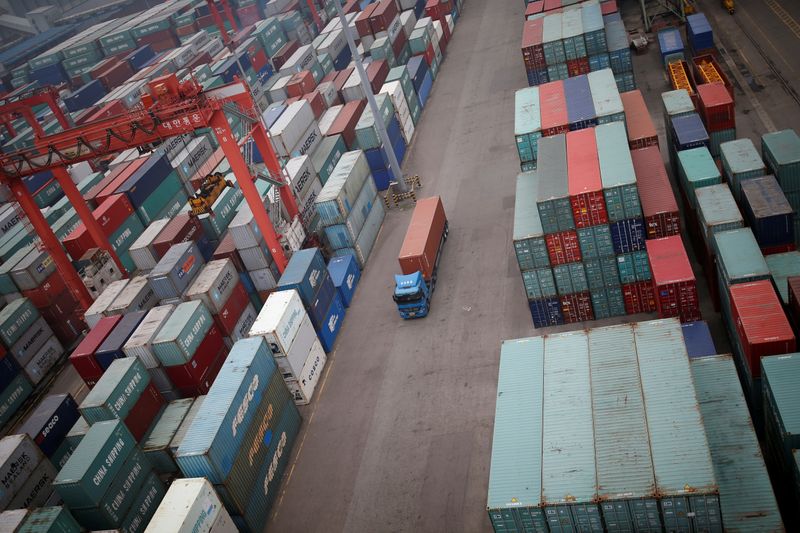By Joori Roh
SEOUL (Reuters) - South Korea likely snapped 14 months of declining exports in February, due to more working days in the month although analysts expect Asia's fourth-largest economy to show a sharp hit to trade from the coronavirus outside the headline figure.
There were 22.5 working days in South Korea in February compared with 19 days in the comparable month of 2019 as the Lunar New Year holiday fell in early February last year but January this year.
While a Reuters poll of economists showed February exports were expected to post their first year-on-year increase since December 2018, several analysts say average daily exports likely fell sharply.
"The recovery momentum in exports is losing steam with the average exports per working day likely to fall 15.8% in February," said Gweon Hee-jin, an economist at Korea Investment & Securities.
Exports are forecast to have expanded 3.4% year-on-year, according to the median forecast of 13 economists in the poll, compared with a 12.4% increase in preliminary data for the first 20 days of the month and a 6.3% decline in January.
Reuters calculations based on the survey, however, show South Korea's average exports per working day would decline 12.7% in February from a year earlier from a 4.6% increase in January. Preliminary data showed February exports fell 9.3% on a daily average basis.
Korea Investment & Securities' Gweon expects exports to China to continue to fall on a slow resumption of Chinese production, while the virus uncertainty will also delay recovery in chip demand.
"Sluggish Chinese imports seen from the preliminary data show that the intermediate goods are not being procured properly in Korea. Difficulties in exports due to a lack of supply would have materialized toward late-February," NH Investment & Securities' economist An Ki-tae said.
Worries about the spread of the disease, which originated in China, swung to South Korea last week as the number of local infections spikes. The government reported 169 new cases early Wednesday, bringing the national tally to 1,146 and a total of 11 deaths.
To cushion the hit to growth, South Korea's central bank is expected to lower its policy rate to a record-low of 1.00% at its policy meeting on Thursday.
In the same poll, 11 economists saw industrial output in January contracting a seasonally adjusted 2.0% from a month earlier.

Economists also expect consumer prices to rise a median 1.0% in February year-on-year, slower than a 1.5% gain a month earlier.